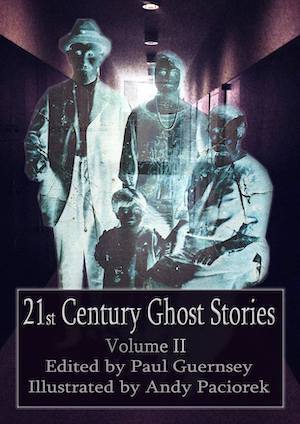HONORABLE MENTION
The 2019 Screw Turn Flash Fiction Competition
BY CASSONDRA WINDWALKER
Mama slipped into bed with me every night, moving slow and breathing careful, hoping not to wake me up. But her train-engine snores always roused me once she finally relaxed. I didn’t mind, though: her snores reminded me she was alive and watching close, and her lumpy body, bony and curvy in discordant places, kept me warm under the thin blanket we shared. I’d count her snores, staring up at the bare planks overhead, till my eyes drifted shut again, and I dreamed of friendly ogres and storms that brought rain and harvest.
I’m a real person now, of course. Poor children aren’t real—not in the way that ordinary people are. They exist on the edges of other folks’ perceptions of themselves, fairytale creatures who look like Orphan Annie or Tiny Tim or Oliver Twist, gracefully dirty but so sweet-natured, dear Tinkerbells just waiting for someone, anyone, to clap their hands and render them sparkling and alight on the wind. The gnarled and twisted, angry and irreverent, uncertain and ill-defined, frightened and defensive, ugly and defective: they lie strewn on the widdershins unacknowledged and unnamed. But I’m a real person now. That child lying in his mama’s bed, all aching belly and wanting eyes, is a stranger even to me. But he’s a stranger whose story I know.
A rabbit made him real, you see. Not the velveteen sort; this isn’t a story about love. It’s a story about hunger, how the inside of your skin can boil and burn and ache so bad that you’d sell every last piece of your soul to ease that pain. I did, and the singular relief of it all is that without a soul, there’s none of that demon remorse to haunt you. Nothing left but glut, and glut, and the swelling of the tongue against the lips.
The rabbit’s name was Rabbit, and it was a saggy, grimy, lint-balled, eyeless lump of cotton and thread whose well-hugged state proved the nonsense of Margery Williams. Still, it went everywhere the boy went, a grey avatar of hopelessness. It went to the grocery store, where a basket proclaimed, “1 Free Piece of Fruit For Children.” Mama always got an orange, the one fruit to their boxes and cans and bags of whatever was cheapest, and they’d split it at night before bed, as if those sweet bursting cords of juice didn’t rather heighten hunger than slake it.
Rabbit watched, and the boy pretended to share, all the while wishing he had Mama’s half as well as his own. Under the sheet later, Rabbit would whisper in his ear: “Why she eat your fruit? You’re so hungry. This whole room smells of orange now. Cain’t you just taste it?”
But the boy didn’t taste anything. He lay there in the dark and hugged his belly, wanting. At first he tried to hush up Rabbit when it talked. Rabbit never said nuthin’ nice, after all. But he got too tired to always be hushing Rabbit. Eventually he got used to the sharp, sly voice. It was easier to listen than to fight.
It was just an ordinary day, the day the boy who became me became real.
Grocery day, with Mama counting up numbers out loud and saying no and no and no to everything the boy wanted. One orange, carefully hoarded up in Mama’s pocket for sharing that night.
“Half an orange,” grumbled Rabbit. “Fruit’s for children. Sign says so. Why she gotta always be stealin’ half your orange?”
Walking home, plastic bags swinging from Mama’s elbows, cold wet snatching at his ankles beneath too-short jeans, Rabbit muttering in his ear all the way. Mama humming under her breath as she waited for the crosswalk sign, his elbow fast in her raw-boned hand, cracked and red from cleaning chemicals. Almost safely across to the waiting curb when Rabbit wriggled free, its stitched feet somehow leaping back into the path of the city bus.
“Come get me!” called Rabbit, gleeful.
Mama lost her grip as the boy tore free, ran back. She just did what mamas do—ran after him, howling, bags swinging like sails from her arms. The boy caught up his Rabbit and dodged out away from the oncoming steel giant, but Mama didn’t make it.
Mama didn’t make it. The boy stood gasping, screaming, gaping in the middle of the street, cars stopped askew, bus driver weeping and swearing, Mama bleeding and staring at the sky.
Mamas do what mamas do, and so do all the other folk—lawyers and city people and judges and such. The boy got a home with food in the cupboards and a bank account and jeans that went all the way down to his sneakers. He missed Mama, missed her train engine snores and cushiony belly and sing-song voice. Rabbit tried to make do, but its songs gave the boy nightmares and kept him up at night.
I still have Rabbit, of course. It sits here on my desk, staring at me with its cross-stitched eyes. I tried throwing it away, more than once, but its voice would carry to wherever I was, calling my name, begging me to rescue it. Pleading for its life, you could say, as Mama never pled for hers. I’d always retrieve it, just to shut it up. Now it sits silent on my desk, staring at me, filling the room with the smell of oranges, day and night.
___________________________________________________________
 Cassondra Windwalker is the author of Parable of Pronouns and Bury The Lead. She has two more books slated for publication in 2019. She resides on the Alaskan coast with a useless dog, a ghost cat, and a darling husband.
Cassondra Windwalker is the author of Parable of Pronouns and Bury The Lead. She has two more books slated for publication in 2019. She resides on the Alaskan coast with a useless dog, a ghost cat, and a darling husband.
